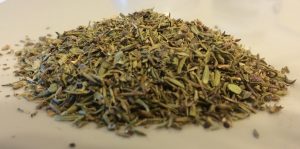 Cold Brew or Iced tea is made through steeping tea in cold water over several hours. Brewing tea in this way draws the flavours out more slowly and can alter the taste of the tea. In addition to this method, I will also brew a cup of tea as per normal, i.e. boil water and steep a tea bag, and let the concoction chill. I find that this way of brewing the tea extracts the essential oils which can be beneficial for health. Regardless of what method is used, ingredients and instructions are listed below, as well as a recipe for an iced tea. Teas that tend to work well with either way of making a cold tea include peppermint, hibiscus, lavender, lemon balm, and green tea.
Cold Brew or Iced tea is made through steeping tea in cold water over several hours. Brewing tea in this way draws the flavours out more slowly and can alter the taste of the tea. In addition to this method, I will also brew a cup of tea as per normal, i.e. boil water and steep a tea bag, and let the concoction chill. I find that this way of brewing the tea extracts the essential oils which can be beneficial for health. Regardless of what method is used, ingredients and instructions are listed below, as well as a recipe for an iced tea. Teas that tend to work well with either way of making a cold tea include peppermint, hibiscus, lavender, lemon balm, and green tea.
Ingredients:
- 1-2 tea bags of the herb of your choice
- 8-16 ounces of water
- Optional: Honey, lemon slice, or mint leaves
Instructions:
Cold Brewed Tea
- Place the tea bag(s) in a pitcher of water, cover, and let steep in the fridge for 6-8 hours.
- When tea is done steeping, strain any sediment from tea using a cheese cloth.
- Serve tea over ice and add either honey, lemon slice, or mint leaves to taste.
Iced Tea
- Boil water and let sit for 5 minutes.
- Pour into pitcher with tea bags and let steep on counter until at room temperature – approximately 30 minutes.
- Place in fridge and let steep for another 6 hours.
- When tea is done steeping, strain any sediment from tea using a cheese cloth.
- Serve tea over ice and add honey to taste, or other possible ingredients (i.e. mint, lemon).
Lemon-Balm/Lavender Iced Tea Recipe
- Take one lemon balm tea bag and one lavender tea bag and place them in a pitcher of water.
- Let steep for 6-8 hours covered in fridge.
- Remove any sediment through straining through a cheese cloth once steeping is complete.
- Serve over ice and add 2 tbsp of honey to taste.
Have you benefited from reading this blog? Know someone that would benefit as well? Share, Like, Comment, or Tweet this article, and let me know what you think.
Some of the information provided above may not be appropriate for everyone, please consult with your doctor before trying any of the above. If you are interested in Naturopathic Medicine and wanting a different approach to your health care needs, contact Dr. Elisha Cook ND by calling 519-537-7058 and book your appointment today!
Source: Celebration Herbals


